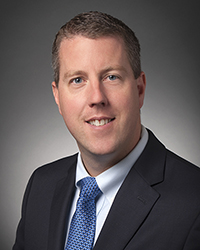
Associated Subcontractors of Mass.
It’s March and our two-year legislative cycle is off and running with public hearings just around the corner. Over 6,000 bills were filed and are now in the process of being sorted and sent to their respective Legislative Committees. A quick search brings up 326 that contain the key word “construction.” While not all these bills will get to the finish line with a signature from governor Baker, the fact that this many bills are filed is an indicator of how much things change year to year. As an Association, ASM advocates for changes to improve the construction industry, whether it is improvements to safety or to encourage workforce development, and at the same time, we advocate to keep our laws fair for subcontractors to conduct business.
I would like to highlight two of the issues that will draw our attention this legislative session: our construction indemnity laws and the new law for Paid Family and Medical Leave.
Indemnity provisions really are important
Reading about indemnification issues tend to cause one’s eyes to glaze over. Yet this is a very important issue in construction. Our indemnity bill simply does what our current law was originally intended- which was to protect subcontractors and put responsibility where it belongs. It makes all contractors and subcontractors on a job take responsibility for their own actions and pay the costs of their own negligence. It would put a stop to contract provisions that shift all risk and responsivity to subcontractors, regardless of fault. It is about fairness.
Today, construction contracts routinely require subcontractors to “indemnify” general contractors and assume total liability for injuries or damages on a project, even when not at fault. This “risk shifting” hurts subcontractors because it forces subcontractors to buy more insurance to cover the added risk and increases construction costs. In addition, if there is a claim against a subcontractor’s policy, it damages their safety record and results in higher premiums, making it harder to get insurance for future projects. One large claim can close a business. Finally, it’s bad for workers, too, because it allows general contractors to get lax on safety, knowing they won’t be responsible if someone gets hurt. According to OSHA requirements, GC’s have the non-delegable responsibility for safety on a job site.
The ASM legislation corrects this unfair situation by making just a few small changes to the current law: The bill clarifies that subcontractors can’t be required to indemnify OR insure general contractors for anything more than what was caused by their own negligence. In other words, they pay only their fair share or “proportional liability”. Subcontractors also can’t be required to provide insurance that covers more than covered by indemnification – thus preventing the use of insurance as a “work-around.”
Lots of questions surround the new Paid Family & Medical Leave law.
While indemnification may be an issue that impacts only construction, the new Paid Family & Medical Leave Law, which goes into effect on July 1st, is something that all employers (and employees) need to be aware of.
Starting on July 1st, employers with 25 or more employees will be required to remit a contribution to the Department of Family and Medical Leave of 0.63% of eligible payroll. This contribution can be split between employee payroll deductions and an employer contribution and will support both types of leave. For family leave, up to 100% of the family leave contribution can be deducted from employee wages. For medical leave, up to 40% of the medical leave contribution can be deducted from employee wages. Employers are responsible for contributing the remaining 60%.
Virtually all workers, whether employees or independent contractors are covered by the law. Once the benefits become effective on January 1, 2021, workers will be eligible for 20 weeks of medical leave and 12 weeks of family leave per benefit year.
The new Department of Family and Medical Leave is scheduled to release regulations on March 31st (a draft version was published in January).
On behalf of its members ASM will be submitting comments seeking clarification on a number of unanswered questions. On May 14th we will host a seminar on the new law to get our members up to speed on how they need to adjust to comply with this new law.
Michael McDonagh is the CEO of of the Associated Subcontractors of Mass., Boston.
